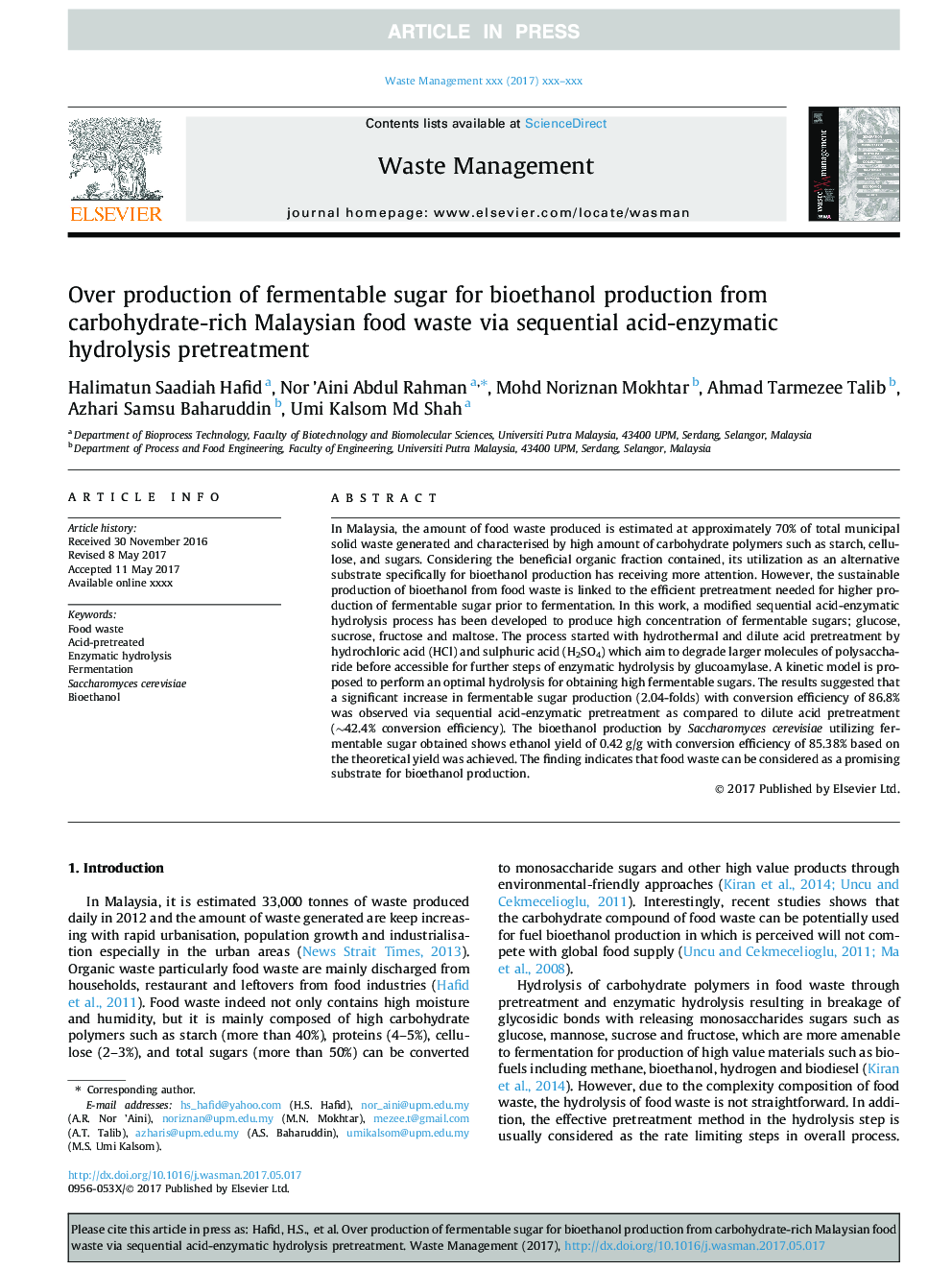| کد مقاله | کد نشریه | سال انتشار | مقاله انگلیسی | نسخه تمام متن |
|---|---|---|---|---|
| 5756645 | 1622619 | 2017 | 11 صفحه PDF | دانلود رایگان |
عنوان انگلیسی مقاله ISI
Over production of fermentable sugar for bioethanol production from carbohydrate-rich Malaysian food waste via sequential acid-enzymatic hydrolysis pretreatment
ترجمه فارسی عنوان
بیش از تولید شکر قابل اشتعال برای تولید بیواتانول از زباله های مواد غذایی مالزی غنی از کربوهیدرات ها با استفاده از پیش آزمون هیدرولیز اسید-آنزیمی
دانلود مقاله + سفارش ترجمه
دانلود مقاله ISI انگلیسی
رایگان برای ایرانیان
کلمات کلیدی
موضوعات مرتبط
مهندسی و علوم پایه
علوم زمین و سیارات
مهندسی ژئوتکنیک و زمین شناسی مهندسی
چکیده انگلیسی
In Malaysia, the amount of food waste produced is estimated at approximately 70% of total municipal solid waste generated and characterised by high amount of carbohydrate polymers such as starch, cellulose, and sugars. Considering the beneficial organic fraction contained, its utilization as an alternative substrate specifically for bioethanol production has receiving more attention. However, the sustainable production of bioethanol from food waste is linked to the efficient pretreatment needed for higher production of fermentable sugar prior to fermentation. In this work, a modified sequential acid-enzymatic hydrolysis process has been developed to produce high concentration of fermentable sugars; glucose, sucrose, fructose and maltose. The process started with hydrothermal and dilute acid pretreatment by hydrochloric acid (HCl) and sulphuric acid (H2SO4) which aim to degrade larger molecules of polysaccharide before accessible for further steps of enzymatic hydrolysis by glucoamylase. A kinetic model is proposed to perform an optimal hydrolysis for obtaining high fermentable sugars. The results suggested that a significant increase in fermentable sugar production (2.04-folds) with conversion efficiency of 86.8% was observed via sequential acid-enzymatic pretreatment as compared to dilute acid pretreatment (â¼42.4% conversion efficiency). The bioethanol production by Saccharomyces cerevisiae utilizing fermentable sugar obtained shows ethanol yield of 0.42Â g/g with conversion efficiency of 85.38% based on the theoretical yield was achieved. The finding indicates that food waste can be considered as a promising substrate for bioethanol production.
ناشر
Database: Elsevier - ScienceDirect (ساینس دایرکت)
Journal: Waste Management - Volume 67, September 2017, Pages 95-105
Journal: Waste Management - Volume 67, September 2017, Pages 95-105
نویسندگان
Halimatun Saadiah Hafid, Nor 'Aini Abdul Rahman, Mohd Noriznan Mokhtar, Ahmad Tarmezee Talib, Azhari Samsu Baharuddin, Umi Kalsom Md Shah,
